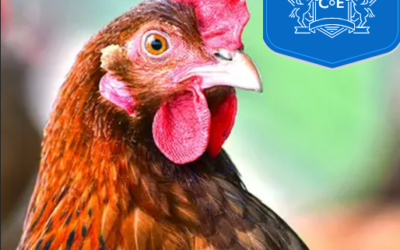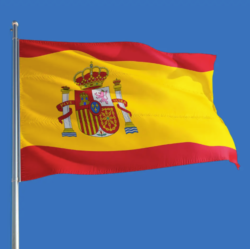🌟 New Year Offer 🌟
Celebrate 2025 with 30% OFF on all products! Use code: NEWYEAR2025. Hurry, offer ends soon!
Centre of Excellence Freelance Journalism Diploma Course
Through this course, you will learn exactly what niche journalism is, the importance of it, and how it can be beneficial to both the reader and the journalist.
“This course is available and delivery within a few hours!”Through this course, you will learn exactly what niche journalism is, the importance of it, and how it can be beneficial to both the reader and the journalist.
Centre of Excellence – Freelance Journalism Diploma Course

Being a freelance journalist takes more than just the ability to write well. This course will provide you with all the skills and knowledge you need to make it in this exciting industry. You’ll learn what it takes to be a good journalist, what is expected of you as a representative of the profession, how to write depending on the kind of journalist you want to be, pitch stories and kick-start your career.
As a freelance journalist, rather that someone who permanently employed by a company, you will have more considerations and responsibilities. The Freelance Journalism Course opens by explaining how the two types of employment differ and the pros and cons of going it alone.
Being able to write clearly, concisely and in a voice relevant to the readership is a given, but to make it in this industry takes more skills and even personality traits than you may be aware of. The Freelance Journalism Diploma Course examines exactly what it takes and the legal and ethical principles you must uphold.
To be considered ‘news journalism’ articles were originally required to be directly related to politics or activities that deeply affected the workings of communities and societies. However, in the digital age, anything can be deemed newsworthy, it just depends on the audience. The point is that it needs to be that, newsworthy.
This course explains what news journalism is, what makes a story newsworthy, the principles that a journalist must follow, what the main roles in news journalism are, and the differences between journalism and reporting.
More than just focusing on writing well, you need to understand the facets of a good story and how to set about writing one. The Freelance Journalism Course teaches you how to construct your work with research, organise the facts, outline your stories, and provide a satisfying conclusion. To aid in this, the course provides some examples of well-written articles for you to dissect.
Another important part of journalism is feature writing. The course outlines what feature writing is and the different forms it can take, along with explaining the difference between this type of writing and news journalism. An important difference to keep in mind is that in feature writing you need to establish a voice for your article. You’ll discover how to define your voice, the skills you will need to write features, and how to go about obtaining relevant quotes.
Coming up with ideas for interesting features can be hard, as can finding a new angle to take on what may be a well-known topic. The Freelance Journalism Diploma Course provides some tricks that will help you on your way. Some examples of good feature articles are also provided, to give substance to the theories covered.
If you already have a firm knowledge base in a particular subject or are particularly adept at researching, your future may lie in niche journalism. Through this course, you will learn exactly what niche journalism is, the importance of it, and how it can be beneficial to both the reader and the journalist.
So, what could your niche be? How do you succeed in your niche? The Freelance Journalism Diploma Course provides a list of broad subjects that you could choose from, all of which have further niches within them that you may specialise in. The course covers three particular niches – sports, travel and fashion – in more detail, explaining how you could succeed in each. However, even if you have no interest in these topics, the techniques and tips learned are just as applicable to other niche areas. Theses niches are used to give real-world examples of how you can use the techniques covered.
Once you’ve taken this course and you have all the skills and knowledge you need to make an impact in the world of journalism, there’s just one more thing to do… get work. Luckily, this is also covered in the Freelance Journalism Course. You’ll learn how to make yourself more marketable to editors (and other decision makers), how to pitch yourself, use your clips effectively, and set a pitching calendar. There is also some advice on how much to charge for various types of work (including resources for further information on this) and useful online sites where you can find freelance journalism work.
This specialist course is primarily designed for those who wish to pursue a career in journalism, whether you have previously taken a writing course or not. With everything covered from the basics of journalism and using specific writing styles, to setting up as a freelancer, finding work and getting paid fairly.
Bloggers will also find a lot of information in the Freelance Journalism Diploma Course that will sharpen your writing skills and how you approach your work. Content marketers will also find the course to be beneficial in ensuring your site’s content is engaging and relevant.
—————
“NOTE: The content above has been rewritten by our library.”
“To read more original content please visit here. ”
Course Features
- Lectures 0
- Quizzes 0
- Skill level All levels
- Students 14
- Assessments Self





